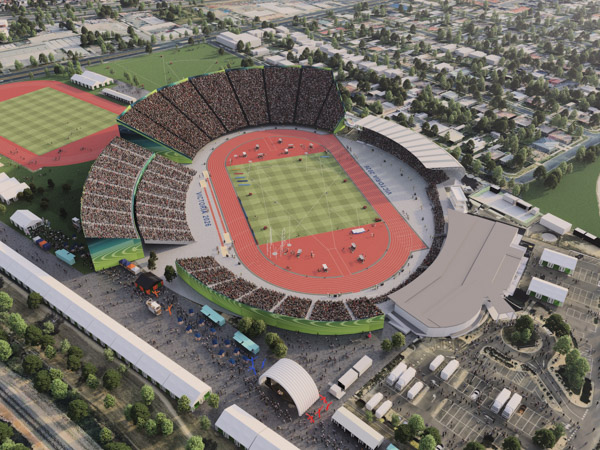Budgeting concerns and the demand for housing has seen the Victorian Government pull the pin on hosting the 2026 Commonwealth Games.
Premier Daniel Andrews has indicated in his press conference this morning that it was a straightforward decision to make after costs blew out to a projected $7 billion, compared to the initial $2 billion outlay.
"I've made a lot of difficult calls, a lot of very difficult decisions in this job. This is not one of them. Frankly, $7 billion for a sporting event, we are not doing that," he says.
"We will instead deliver all and more of the legacy benefits in housing, sporting infrastructure, tourism and we will unpack all that tomorrow and throughout the week and there will be further details of all of that as well as the process to deliver that."
The Games’ events were to be spread across five regional centres at Geelong, Ballarat, Bendigo, Gippsland and Shepparton.

The new facilities that were earmarked for the games, including a multi-purpose facility in Geelong will go ahead, confirms Deputy Premier Jacinta Allan. Allan has also confirmed that the refurbishment of Ballarat’s Eureka Stadium, designed by COX and Morton + Co. (pictured above) and Ballarat Stadium will proceed as planned.
"Each and every one of the community sporting infrastructure projects that we had been in detailed planning and design and conversation with councils and local communities, each one of those sporting infrastructure facilities will be going ahead and we will be wanting to push on and complete those projects with those local communities following consultation with them," she says.
"They worked very hard over the past 12 months, working with regional communities and much of their work in terms of delivering those long-term legacy benefits will continue to yield results for regional Victoria.”
The initial $2 billion that was allocated for the Games will now be redirected into the Regional Housing Fund, which will see 1,300 new homes built in regional Victoria across the next decade.
Approximately 4,000 jobs were to be created during the Games, with 3,000 enduring jobs to be established afterwards. The planned projects within the regions, namely ones attached to the Regional Housing Fund, will mitigate the loss of initially planned jobs.

